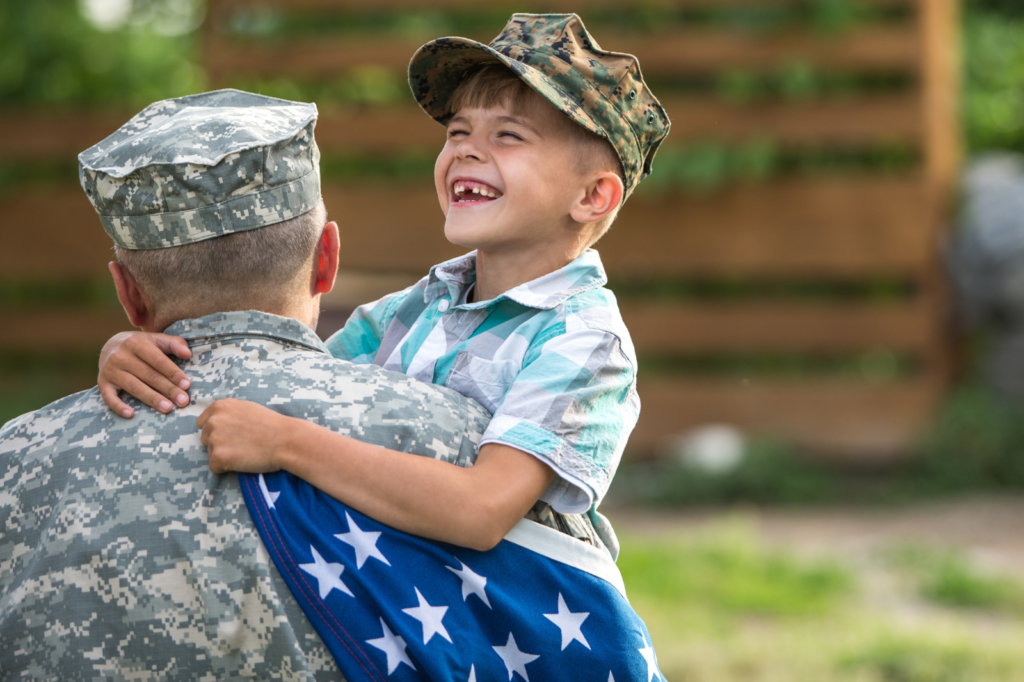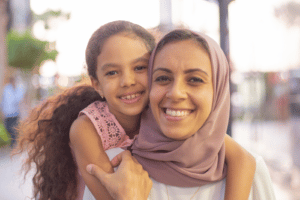It’s a new year, and that means it’s a perfect time to reflect on our habits and goals for ourselves and our family – especially around mental wellness for your family. I encourage you to take some time to reflect on how your family is doing in these five areas below. Take note of any areas where you would like to grow, and decide on some small steps your family could take to make those changes happen.
Use Teamwork and Encouragement
Just like the engine in your car, families are a complex system. All pieces of the engine must work together in order to make the car run smoothly. While all family members have unique roles and responsibilities, healthy couples nurture and encourage each other. In your family, this may mean one parent takes over bath time so the other can rest after a stressful day. Or maybe it’s a simple as leaving your partner a note to let them know appreciate something they did.
This kind of nurturing can extend to your kids, too. Maybe that means working together to help your child with homework or letting them know how proud you are that they tried out for Drama Club. Healthy families also seek support and encouragement from their greater community, whether that be their military community, spiritual community, extended family, or other community group.
Practice Healthy Communication
Healthy relationships are essential for mental wellness. And these relationships start with communication that is:
- honest
- respectful, and
- developmentally appropriate communication.
Honest communication means sharing things like your own feelings and reactions; information about changes, such as a military training, deployment, or PCS; and family values and expectations. Respectful communication means speaking in a calm voice, using “I statements,” avoiding harsh criticisms, and actively listening to others just as much as you speak. Developmentally appropriate communication will look different with different family members. Communication with young children is best done with short and simple words and less detail. Older children and teenagers often need more information and a chance to ask questions.
Make Time for Self-Care
A main ingredient for individual mental wellness is self-care. And because families are a complex and intertwined system, individual mental wellness promotes better family wellness. Self-care looks different for each person, but includes doing meaningful activities that enhance your physical health, personal joy, spiritual nourishing, or a sense of learning or accomplishment.
Examples of self-care include:
- eating nutritious food
- getting enough sleep
- making time for exercise
- playing a favorite game
- reading a book or watching your favorite TV show
- attending church or praying
- spending time in nature
- taking a class on an interesting topic.
Taking the time to take care of yourself means that you are healthier and thus able to give more to your family. Also, encourage others in your family to engage in self-care and provide each other with support to make it happen.
Prioritize Quality Family Time
Between long duty hours, military trainings, and deployments, it takes extra effort to find the opportunity to spend time together as a family. Nevertheless, it is effort well spent because quality time together is important for building strong family relationships. Quality time doesn’t mean just being in the same room together; it means doing meaningful things together as family, things that bring your whole family joy or excitement.
Examples might include watching the family’s favorite movies together, going hiking as a family, or having a board game night. Activities could also be meaningful because they align with your family’s values. Examples of this might include attending church together or sharing something you are grateful for at the dinner table each evening. All members of the family should have a say in how quality family time is spent. Doing this can bring families together and strengthen both parent-child and couple relationships.
Build Consistent Routines
The key to maintaining any healthy habit is practice and consistency. If you have decided to incorporate any of the above activities into your life in a new way, it may be difficult at first. It can be easy to slip into old habits such as overworking, not giving time for self-care or meaningful family activities, or forgetting to fully communicate with family members. It all must be consistently practiced. Consistency is also very important for children’s wellbeing. Consistent routines help children experience a sense of safety, predictability, and control in their world. Talk with your family; if you collaboratively decide to incorporate a new habit, commit to consistently incorporating it into your family routines. The longer you do it, the more natural it will become.
For more information on any of these healthy habits and for guidance in building mental wellness in your military family, download our free guide, A Battle Plan for Military Children’s Mental Wellness.










